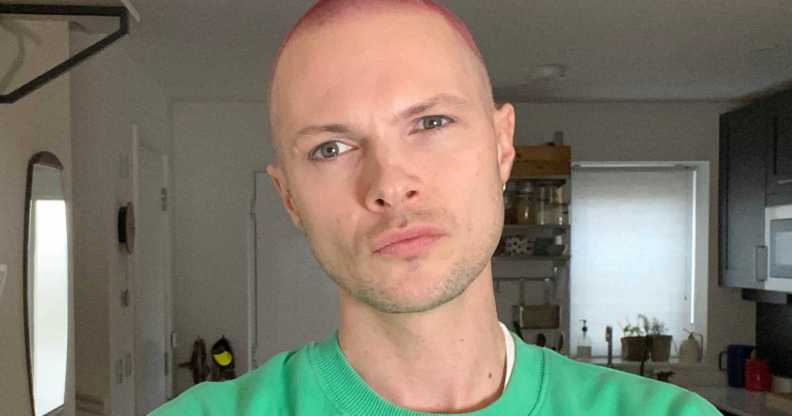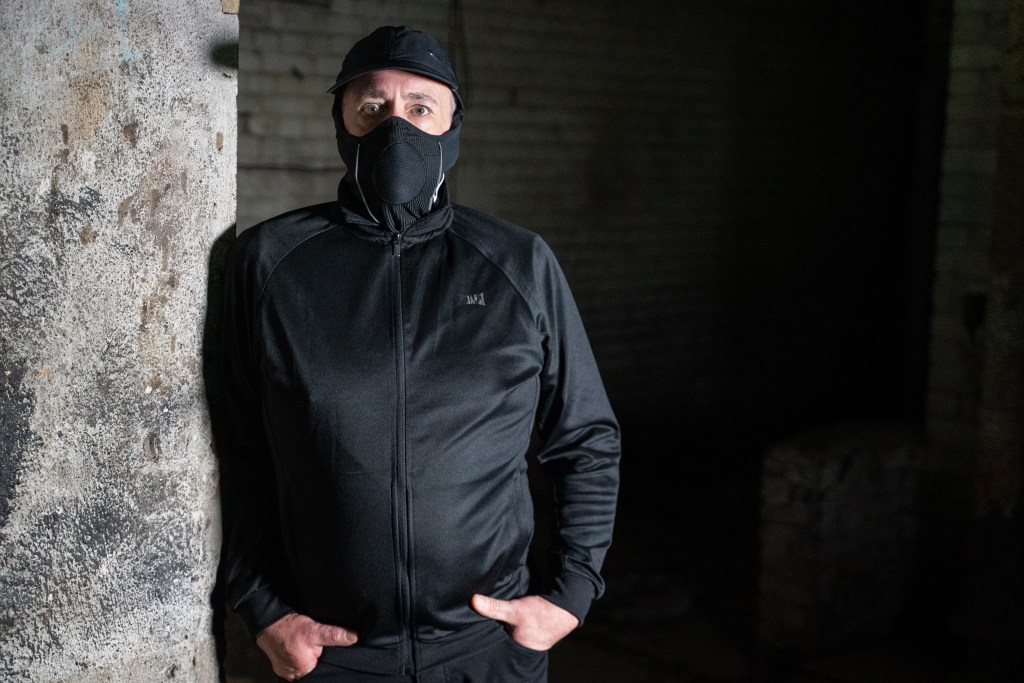It’s a Sin star explores dark internet subculture around HIV transmission in Channel 4 film

It’s a Sin star Nathaniel J Hall has investigated a dark internet subculture around HIV transmission to create a thought-provoking documentary for Channel 4. (Channel 4)
It’s a Sin star Nathaniel J Hall has investigated a dark internet subculture around HIV transmission to create a thought-provoking documentary for Channel 4. (Channel 4)
HIV activist and It’s a Sin star Nathaniel J Hall fronts a new Channel 4 documentary that explores dark and troubling internet subcultures around HIV transmission.
Bug Chasers: The Men Who Want HIV, a short film for Channel 4, explores the controversial topic of so-called ‘bug-chasing’, where some people, called “chasers”, actively pursue others with HIV, who are known as “gifters”, in the hope of contracting the life-long condition – which, if left untreated, can have serious health implications.
Actor Hall, who played Donald Basset in Russell T Davies’ searing Aids drama It’s a Sin, embedded himself in this taboo world for about four weeks – something he describes as an “exhausting” process because of the “group self-harm” he felt was taking place.
“It really breaks my heart to know that within our community that takes place,” said Hall, who diagnosed with HIV just before his 17th birthday.
Hall says he became aware of so-called ‘bug chasing’ soon after his own diagnosis, recalling that he himself had been left feeling “uncomfortable” asking being asked to transmit the virus to others.

His diagnosis led him to write the one-man play First Time, which opened in 2018 to critical acclaim and saw him play out his experiences around HIV on stage.
Hall, who is now in his mid-thirties and promotes HIV prevention and awareness through his work, was aware the Channel 4 film was going to be controversial given its difficult subject-matter.
“Sometimes the places and spaces on the margins, and the issues that divide us the most, can teach us most about who we are and why we are that way”, he says. “I thought, if someone has a totally opposite viewpoint to me, it’s interesting to see those things together.”
Nathaniel stresses that the Channel 4 film is not designed to condone the behaviours it explores, nor condemn those who partake in it, and he explains that he didn’t want to stigmatise or shame anyone with the documentary.
Hall admits that he himself questioned whether he should shine a spotlight such a small minority community, which is mostly made up of fantasists. He says he chose to go ahead in a bid to understand how to “navigate public health messaging and activism around these issues”.
Hall says that the people he spoke to as part the documentary had “a myriad of reasons” to explain their behaviour.
“There are some people who speak about wanting to remove the fear of contracting HIV”, he explains. “The thing I found confronting was when people said: ‘I’m scared of getting HIV, so I’m going to get it on my terms’. But we have the tools to stop that now.”
Nathaniel notes that research for the film indicated that, in extreme cases, there was crossover with other “quite extreme sexual practices”, including heavy drug use.
“Some people, from my perspective, had [an] extreme fantasy of self-harm, and I can only speculate on the reasons why they might be in those positions,” he says.
The documentary includes comments from Dr Jamie Garcia-Iglesias, who has written an academic paper on the topic.
HIV organisations want to focus on the ‘incredible progress’ around HIV prevention
HIV/Aids organisations tell PinkNews that they want the focus to remain firmly on the positive advances made around HIV treatment and prevention.
James Cole, senior policy, influencing and research manager at National Aids Trust, tells PinkNews that, as the documentary highlights: “There is little evidence of people taking ‘bug chasing’ beyond online fantasy. The overwhelming majority of people living with and affected by HIV take their sexual health seriously.
“Recent data shows that 98 per cent of people living with HIV in England, who are aware of their status, adhere to medication and are virally suppressed, meaning [they] cannot pass the virus on to their sexual partners.”
Pre-exposure prophylaxis (PrEP) has helped reduce HIV transmissions, he adds.
“We would always encourage people to do what they can to prevent themselves from acquiring HIV. This includes safer sex practices like using condoms and PrEP and testing regularly for HIV.
“Although HIV can be a manageable condition, it can still have extremely serious health consequences if left untreated or diagnosed late.”
Alex Sparrowhawk, the HIV and ageing manager at the Terrence Higgins Trust, tells PinkNews: “What we want to focus on is the incredible progress we’ve made around HIV, which means people diagnosed today can live healthy and fulfilling lives.
“My HIV treatment is just one pill a day, which means I’ll live as long as anyone else and can’t pass it on to my boyfriend. PrEP, a free pill that protects you from HIV, is available for HIV-negative people from sexual health clinics across the UK.
“HIV tests are widely available and can be done in the comfort of your own home using a self-test, with just minutes to wait before finding out your status.
”If people are concerned about uncomfortable sexual desires or fantasies, they can talk to a trained psychosexual therapist. This involves talking therapy aimed at helping individuals talk about their lives, their sexual issues and preferences, to resolve specific sexual concerns.”
Bug Chasers: The Men Who Want HIV is available to watch on Channel 4’s YouTube channel.

